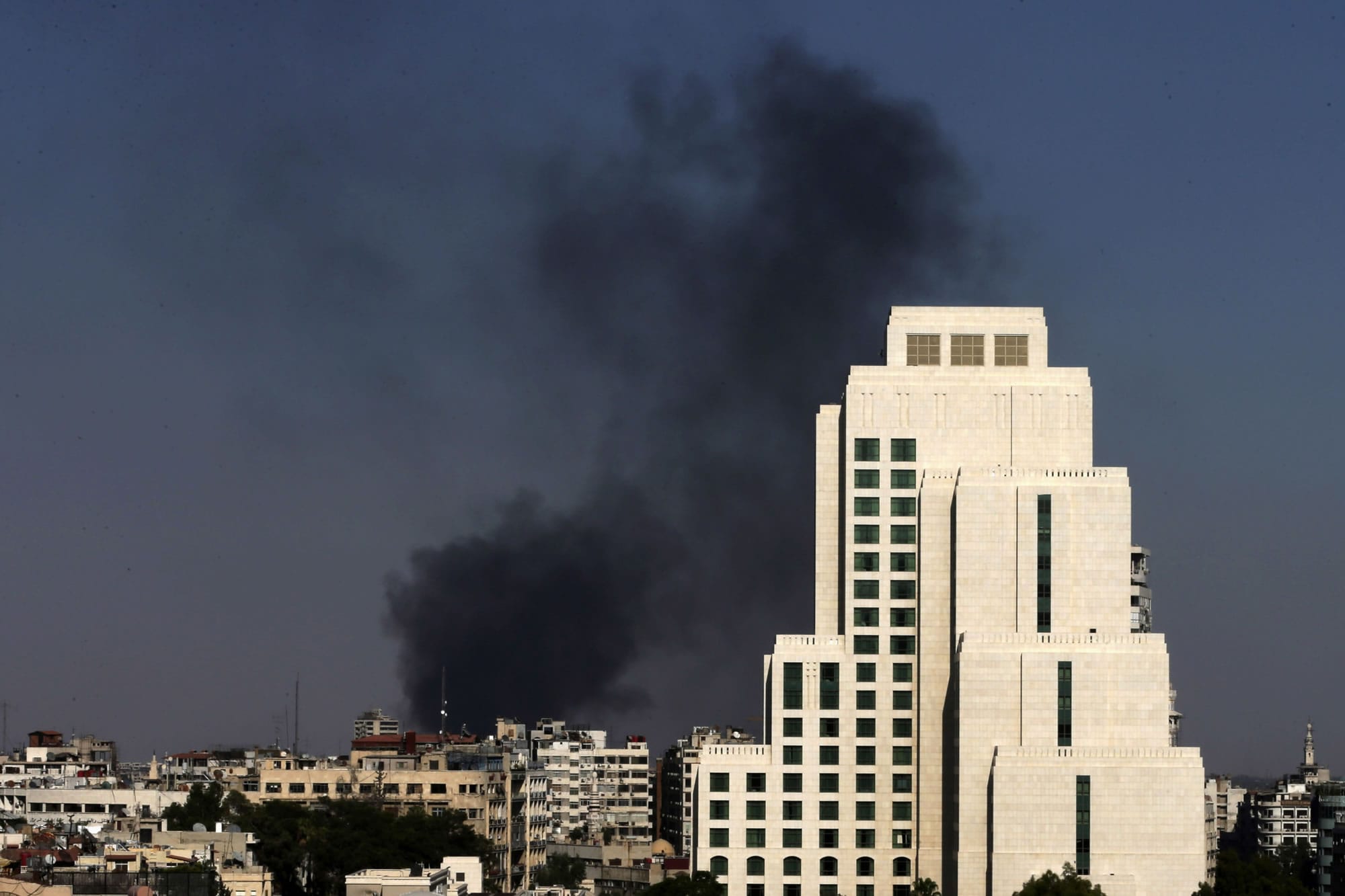WASHINGTON — President Barack Obama faced pushback Thursday on a potential military strike against Syria, with wary lawmakers in both the U.S. and Britain demanding more proof that Bashar Assad’s government was responsible for a suspected chemical weapons attack. Even so, military action could come within days.
Top U.S. officials scheduled a briefing with lawmakers late Thursday to present a case that Syrian forces killed hundreds of civilians with chemicals last week. But key evidence is classified, they said, suggesting the public won’t see the most convincing material tying Assad’s government to the attack.
New hurdles appeared to slow the formation of an international coalition to move against Syria or to sanction whatever the U.S. might do on its own.
British Prime Minister David Cameron said his country would hold off on joining any military efforts until a U.N. chemical weapons inspection team releases its findings, probably no earlier than the weekend. At the United Nations, Russia blocked British efforts to seek a resolution authorizing the use of force.
But it appeared unlikely that any balking among allies, flak thrown up by Russia or skepticism in Congress would slow Obama’s hand much longer.
He said late Wednesday that while he had not settled on a response, the U.S. has concluded that Assad’s government perpetrated a chemical weapons attack, “and if that’s so, then there need to be international consequences.”
The administration planned an intelligence teleconference briefing Thursday evening on Syria for leaders of the House and Senate and the national security committees in Congress, U.S. officials and congressional aides said. Earlier, Obama spoke by phone with Republican House Speaker John Boehner, who has asked the president to make a sharper case on the legal justification for any military strike and its objective.
Many Congress members were pressing Obama to explain the need for military action and address fears that such a move might draw the U.S. deeper into the Syrian civil war. Both Democrats and Republicans were among lawmakers protesting that Obama hasn’t made the case for a military strike, with some arguing that the president needs congressional authorization to order an attack.
White House spokesman Josh Earnest suggested an intelligence assessment might be released publicly as early as Thursday. But he said the unclassified document would not contain information that could reveal intelligence sources or methods and as a result would not be as complete as a classified assessment.
“We’re not going to be in a position to provide all of the evidence that has been collected,” he said. Still, he asserted there is a “preponderance of publicly available evidence to indicate that the Assad regime carried out chemical weapons attacks in Syria.”
Earnest said lawmakers who have seen the full assessment, such as Senate intelligence committee chairwoman Diane Feinstein and the panel’s top Republican, Saxby Chambliss, have found it to be persuasive that the Assad government was behind the attack.
On the diplomatic front, Obama and German Chancellor Angela Merkel spoke by phone Thursday and both agreed that the attack near Damascus on Aug. 21 was a serious breach of international law, the German government said.
Merkel said that as soon as their work is done, U.N. inspectors should report to the Security Council so it can take action — a course Obama is giving little weight, given Russia’s position. Merkel also discussed Syria by phone Thursday with Russian President Vladimir Putin, insisting that the attack “requires an international reaction,” Merkel spokesman Steffen Seibert said.
With national elections in Germany coming next month, Merkel is not expected to commit her country’s forces to military action.
U.S. intelligence intercepted lower-level Syrian military commanders’ communications discussing the chemical attack, but the communications don’t specifically link the attack to an official senior enough to tie the killings to Assad himself, according to three U.S. officials. They spoke on condition of anonymity because they were not authorized to discuss the intelligence publicly.
The lineup for the teleconference underscored the gravity of the matter. The briefers are Obama’s national security adviser and intelligence chief, Susan Rice and James Clapper, alongside Secretary of State John Kerry, Defense Secretary Hagel and Adm. James Winnefeld, the vice chairman of the Joint Chiefs of Staff, congressional aides said.
The White House ideally wants intelligence that links the attack directly to Assad or someone in his inner circle, to rule out the possibility that a rogue element of the military decided to use chemical weapons without Assad’s authorization.
That quest for added intelligence has delayed the release of the report laying out evidence against Assad. The report was promised earlier this week by administration officials.
The CIA and the Pentagon have been working to gather more human intelligence tying Assad to the attack, relying on the intelligence services of Jordan, Saudi Arabia and Israel, the officials said.
Both the CIA and the Defense Intelligence Agency have their own human sources — the rebel commanders and others who cross the border to brief CIA and defense intelligence officers at training camps in Jordan and Turkey. But their operation is much smaller than some of the other intelligence services, and it takes longer for their contacts to make their way overland.
Obama said he was not seeking a lengthy, open-ended conflict in Syria, indicating that any U.S. response would be limited in scope. But he argued that Syria’s use of chemical weapons not only violated international norms, but threatened “America’s core self-interest.”
“We do have to make sure that when countries break international norms on weapons like chemical weapons that could threaten us, that they are held accountable,” he said on PBS.
The goal of military action would be to punish Assad and perhaps limit his ability to order chemical weapons attacks in the future, the administration says, not to change the balance of the civil war or drive him from power.



